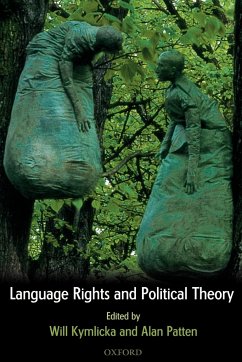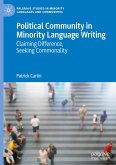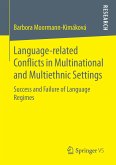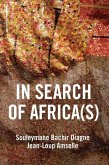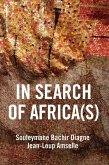Disputes over language policy are a persistent feature of the political life of many states around the world. Multilingual countries in the West such as Belgium, Spain, Switzerland and Canada have long histories of conflict over language rights. In many countries in Eastern Europe and the Third World, efforts to construct common institutions and a shared identity have been severely complicated by linguistic diversity. Indigenous languages around the world are in danger of disappearing. Even in the US, where English is widely accepted as the language of public life, the linguistic rights of Spanish-speakers are hotly-contested. Not surprisingly, therefore, political theorists have started to examine questions of language policy, and how they relate to broader issues of democracy, justice and rights. This volume provides the reader with an up-to-date overview of the emerging debates over the role of language rights and linguistic diversity within political theory.
This volume provides the reader with an up-to-date overview of the emerging debates over the role of language rights and linguistic diversity within political theory. It brings together many of the leading political theorists who work in the field, together with some of the most important social scientists, with the aim of exploring how political theorists can conceptualize issues of language rights and contribute to public debates on language policy. The thirteen essays in this volume highlight both the empirical constraints and normative complexities of language policy, and identify the important challenges and opportunities that linguistic diversity raises for contemporary political theory.
Hinweis: Dieser Artikel kann nur an eine deutsche Lieferadresse ausgeliefert werden.
This volume provides the reader with an up-to-date overview of the emerging debates over the role of language rights and linguistic diversity within political theory. It brings together many of the leading political theorists who work in the field, together with some of the most important social scientists, with the aim of exploring how political theorists can conceptualize issues of language rights and contribute to public debates on language policy. The thirteen essays in this volume highlight both the empirical constraints and normative complexities of language policy, and identify the important challenges and opportunities that linguistic diversity raises for contemporary political theory.
Hinweis: Dieser Artikel kann nur an eine deutsche Lieferadresse ausgeliefert werden.

